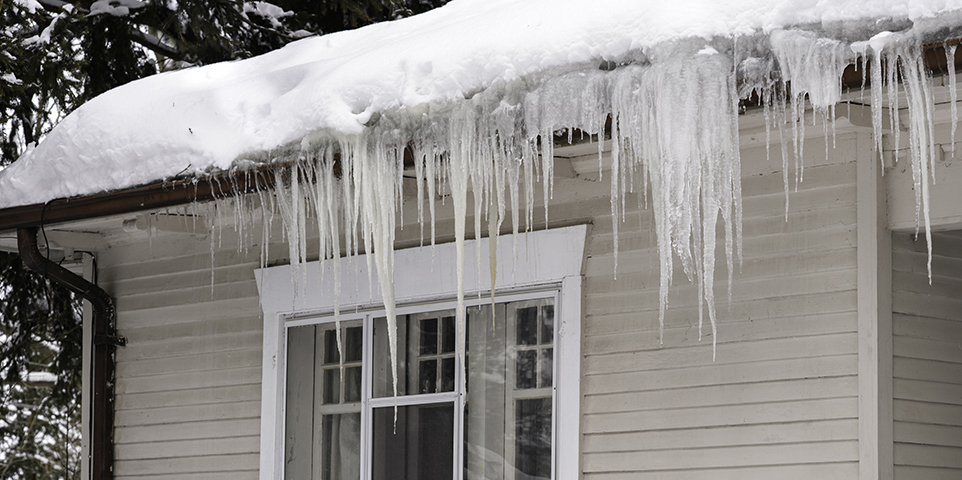 Triple-I/Clogged gutters and ice can cause serious damage to roofing systems.
Triple-I/Clogged gutters and ice can cause serious damage to roofing systems.
By NANETTE LoBIONDO GALLOWAY
Downbeach emergency workers are experiencing higher than normal water emergencies caused by absentee property owners failing to properly winterize their homes.
Although the last week saw warmth records broken, the week leading up to the holidays brought colder than normal temperatures. It will soon get colder as the winter season gets in full swing.
Over the Christmas holiday when temperatures dropped below freezing, Ventnor emergency workers were called to 32 properties experiencing frozen pipes and flooding. In Margate, there were 60 calls over a three-day period.
Calls for water leak emergencies were up because homeowners are not paying attention to shutting off their water, and heating units are not properly insulated, Margate Fire Chief Dan Adams said. These units are being destroyed by water damage.
In one instance, emergency responders could not reach the second floor because the stairwell was covered in ice.
Public works and utility departments also must respond to turn off water at the street until repairs can be made. The fire department had to create a spreadsheet to keep track of all of them.
We had 2,100 calls for service this season, which is quite a big number for a small department, Adams said.
In most cases where properties are vacant, the heat was turned off and the pipes not winterized.
We see this every year, Ventnor Police Chief Joseph Fussner said. Out-of-town owners fail to winterize their outside showers. From Dec. 15 to today, there were 32 incidents in addition to the water main break at Calvert and Dorset avenues.
Absentee property owners should properly winterize their homes before leaving for the season. If not, they should, at a minimum, ask a friend to check on the property periodically, or hire a property maintenance company to do it.
Responding to all these unnecessary calls taps our police and fire resources. Property owners should take the necessary steps to prevent this from happening, Fussner said.
When leaving for the season, the heat should be set at a minimum of 55 degrees, and all the outside pipes or those in crawl spaces should be drained. That includes sprinkler systems. Faucets and toilets should be drained of standing water and can be replaced with a non-toxic form of antifreeze.
Some heating units become inoperable if they are too close to an outside wall that is not properly insulated, which could lead to the pipes freezing.
Margate Police Chief Matthew Hankinson said police are usually the first to respond to such emergencies, so homeowners should contact the Police Department to register their emergency phone numbers and the names of their caretakers or property management company.
Having emergency contact information is key in situations like this, he said. It's as easy as calling dispatch.
It's usually neighbors who call to report water leaks in vacant homes. One recent Facebook post reported water flowing from the second floor onto the lawn and into the street.
According to the Insurance Information Institute, preparing for snow, ice and frigid temperatures is essential for homeowners.
Dealing with a loss after catastrophe strikes can be tough on many levels, which is why the insurance industry is evolving from a focus on detect and repair' to predict and prevent, said Sean Kevelighan, CEO, Triple-I. As winter sets in, Triple-I encourages property owners to take action now to reduce their weather risks. Preventing loss creates a win-win for consumers and insurers.
To protect homes and cars during the winter months, the Triple-I offers the following guidance:
Inside Your Home
Copyright Mediawize, LLC 2022